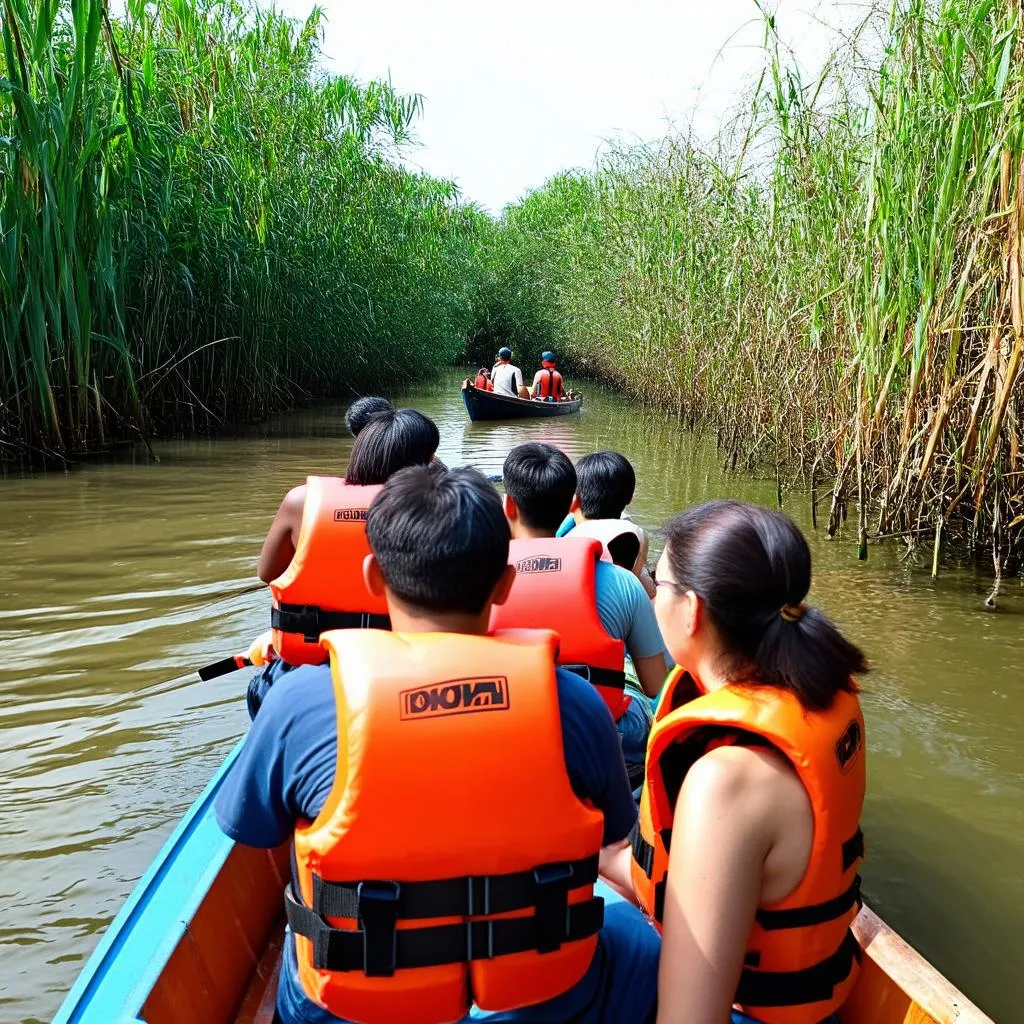Have you ever found yourself mesmerized by the ancient temples of Angkor Wat, only to realize later that the souvenirs you bought were mass-produced and didn’t benefit the local community? Or perhaps you’ve been captivated by the vibrant coral reefs while scuba diving, but felt a pang of guilt knowing that irresponsible tourism practices threaten these delicate ecosystems?
That’s where ethical tourism comes in. It’s about more than just ticking off destinations on your bucket list. It’s about traveling consciously, minimizing your negative impact, and maximizing the positive contributions you make to the places you visit and the people you meet.
What is Ethical Tourism?
Ethical tourism, also known as responsible tourism or sustainable tourism, is a way of traveling that considers the social, economic, and environmental impact of your trip. It’s about making conscious choices that benefit the local communities, preserve cultural heritage, and protect the environment.
Why is Ethical Tourism Important?
The travel and tourism industry, while a source of significant economic growth, can also put a strain on resources, disrupt communities, and damage the environment if not managed responsibly. Ethical tourism aims to mitigate these negative impacts by:
- Empowering local communities: Supporting local businesses, hiring local guides, and respecting local customs ensures that tourism benefits the people who call these destinations home.
- Preserving cultural heritage: Ethical tourism promotes respect for local traditions and helps protect cultural sites from overtourism and exploitation.
- Protecting the environment: Minimizing your carbon footprint, reducing waste, and choosing eco-friendly accommodations all contribute to preserving the beauty of the destinations for future generations.
How to Practice Ethical Tourism: A Practical Guide
1. Choose Your Destination Wisely
Research your destination and consider its vulnerability to overtourism. Opt for destinations that prioritize sustainable practices and community-based tourism initiatives.
2. Support Local Businesses
From dining at locally owned restaurants and cafes like those found on Nguyen Hue Walking Street to buying handicrafts directly from artisans, your choices can make a real difference in supporting the local economy.
3. Be a Respectful Visitor
Learn a few basic phrases in the local language, dress modestly when appropriate, and ask permission before taking photos of people. Remember, you are a guest in someone else’s home.
4. Minimize Your Environmental Impact
- Pack light: This reduces fuel consumption during transportation.
- Use reusable water bottles: Avoid single-use plastics.
- Choose eco-friendly accommodations: Look for accommodations with sustainable practices, such as solar power or rainwater harvesting.
5. Consider Your Carbon Footprint
Opt for direct flights when possible, use public transportation or walk instead of taxis, and choose carbon offsetting programs to neutralize the environmental impact of your travel.
Ethical Tourism and Feng Shui
Feng Shui, the ancient Chinese practice of harmonizing oneself with the surrounding environment, aligns perfectly with the principles of ethical tourism.
- Respect for Nature: Feng Shui emphasizes living in harmony with nature, encouraging us to appreciate and protect the environment – a core value in ethical tourism.
- Mindful Travel: Feng Shui encourages mindfulness and intention in all aspects of life, including travel. By traveling with awareness and purpose, we can make choices that benefit both ourselves and the destinations we visit.
FAQs About Ethical Tourism
1. Is ethical tourism more expensive?
Not necessarily. While some eco-lodges or sustainable tours might have a higher price tag, many ethical travel choices can be budget-friendly, such as eating at local eateries, using public transport, and staying in locally owned guesthouses.
2. How can I find ethical tour operators?
Look for certifications like Travelife or the Global Sustainable Tourism Council (GSTC). Read reviews, research the operator’s website, and don’t hesitate to ask questions about their commitment to responsible tourism practices.
3. Can I still enjoy luxury travel while being an ethical tourist?
Absolutely! Many luxury hotels and resorts are adopting sustainable practices. Choose luxury experiences that prioritize local sourcing, community engagement, and environmental conservation.
Travelcar.edu.vn: Your Guide to Ethical Tourism
At Travelcar.edu.vn, we believe in the power of travel to inspire, educate, and connect people with the world around them. We are committed to providing you with the resources and information you need to travel responsibly and make a positive impact.
For more insights into ethical travel and to explore destinations that prioritize sustainability, visit our website and discover a world of responsible travel opportunities.
Discover Vietnam Responsibly
Vietnam, with its diverse landscapes, rich culture, and warm hospitality, offers a plethora of opportunities for ethical tourism:
- Explore the ancient town of Hoi An: Discover charming tailor shops, sample local delicacies at family-run restaurants, and support sustainable craft workshops.
- Trek through the Sapa rice terraces: Engage with local communities, stay in homestays to experience local life, and support fair-trade handicraft businesses.
- Cruise the Mekong Delta: Choose responsible tour operators that prioritize environmental conservation and support local communities.
 Ethical Traveler in Hoi An
Ethical Traveler in Hoi An
 Mekong Delta Eco Tour
Mekong Delta Eco Tour
Ethical tourism is a journey, not a destination. By making conscious choices and supporting businesses that align with your values, you can create a positive ripple effect that benefits both the places you visit and the people you meet along the way.